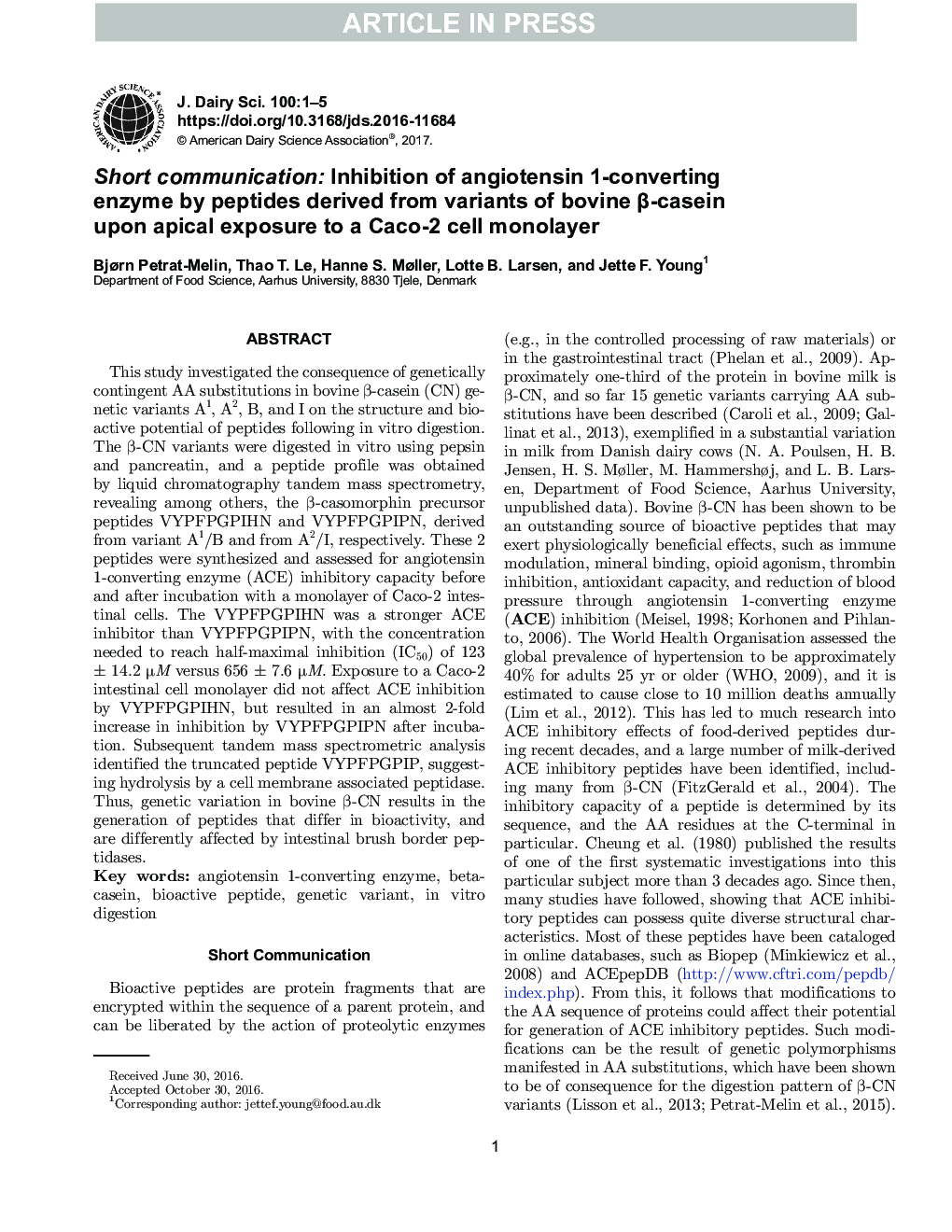| Article ID | Journal | Published Year | Pages | File Type |
|---|---|---|---|---|
| 5542397 | Journal of Dairy Science | 2017 | 5 Pages |
Abstract
This study investigated the consequence of genetically contingent amino acid substitutions in bovine β-casein (CN) genetic variants A1, A2, B, and I on the structure and bioactive potential of peptides following in vitro digestion. The β-CN variants were digested in vitro using pepsin and pancreatin, and a peptide profile was obtained by liquid chromatography tandem mass spectrometry, revealing among others, the β-casomorphin precursor peptides VYPFPGPIHN and VYPFPGPIPN, derived from variant A1/B and from A2/I, respectively. These 2 peptides were synthesized and assessed for angiotensin 1-converting enzyme (ACE) inhibitory capacity before and after incubation with a monolayer of Caco-2 intestinal cells. The VYPFPGPIHN was a stronger ACE inhibitor than VYPFPGPIPN, with the concentration needed to reach half-maximal inhibition (IC50) of 123 ± 14.2 μM versus 656 ± 7.6 μM. Exposure to a Caco-2 intestinal cell monolayer did not affect ACE inhibition by VYPFPGPIHN, but resulted in an almost 2-fold increase in inhibition by VYPFPGPIPN after incubation. Subsequent tandem mass spectrometric analysis identified the truncated peptide VYPFPGPIP, suggesting hydrolysis by a cell membrane associated peptidase. Thus, genetic variation in bovine β-CN results in the generation of peptides that differ in bioactivity, and are differently affected by intestinal brush border peptidases.
Related Topics
Life Sciences
Agricultural and Biological Sciences
Animal Science and Zoology
Authors
Bjørn Petrat-Melin, Thao T. Le, Hanne S. Møller, Lotte B. Larsen, Jette F. Young,
